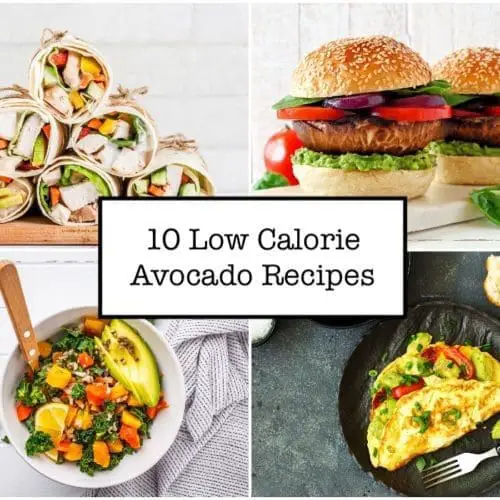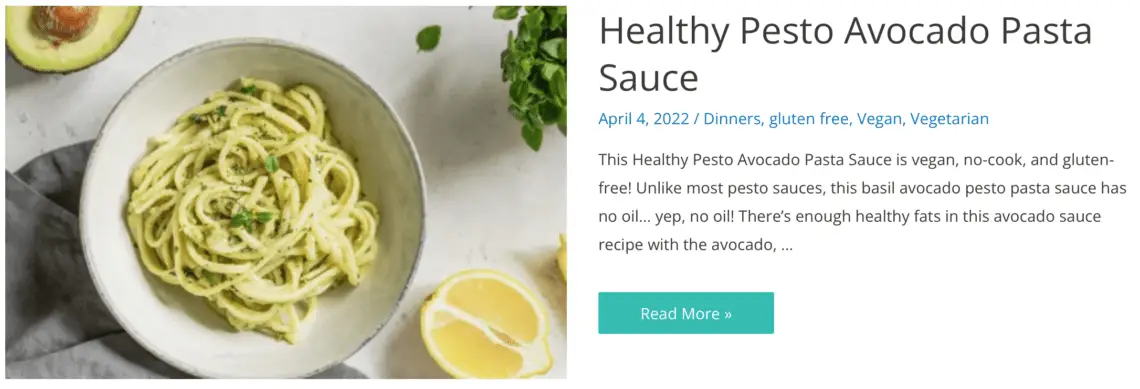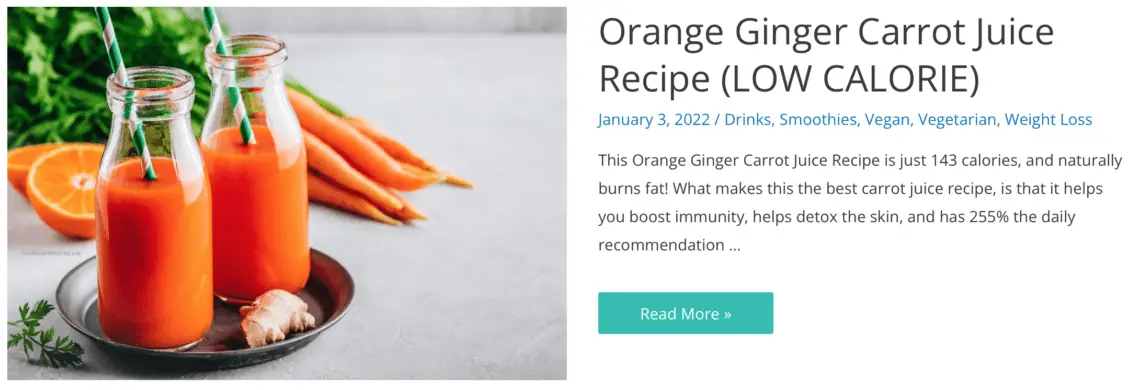In this Avocado Nutrition Info article, you will learn how many calories in avocados, protein in avocados. And learn all the wonderful health benefits of adding avocados to your diet.
The health benefits of avocados are widely known and have been extensively studied. Not only are they a rich source of healthy fats, but they also contain a wide range of essential vitamins and minerals that are vital to good health.


In this article, I’ll share the various benefits of consuming avocados and how they can positively impact your health. I will also provide tips on how to incorporate avocados into your diet and how they can be used in a variety of recipes.
Avocado Nutrition Facts
Avocados are a nutrient-dense food that is low in carbohydrates and high in healthy fats. A medium-sized avocado contains between 250-280 calories and 23 grams of fat, of which 75% is monounsaturated and 13% is polyunsaturated. They are also an excellent source of dietary fiber, potassium, vitamin K, vitamin C, and vitamin B6.
Basic Avocado Nutrition:
- Calories: 289
- Protein: 3.4
- Carbs: 15
- Fat: 26.7
- Saturated Fat: 3.7
- Sugar: 0.5
One of the key health benefits of avocados is their ability to promote heart health. The high levels of monounsaturated and polyunsaturated fats found in avocados have been shown to reduce LDL (bad) cholesterol levels and increase HDL (good) cholesterol levels. This, in turn, can help to lower your risk of heart disease.
Avocados also contain a wide range of antioxidants, including lutein, zeaxanthin, and vitamin E, which help to protect your cells from oxidative damage caused by free radicals. This can help to reduce your risk of chronic diseases such as cancer, diabetes, and Alzheimer’s disease.
Nutrition Breakdown for Avocados
Avocados are packed with nutrients that are essential for good health. Here is a breakdown of the key nutrients found in avocados:
- Healthy Fats – Avocados are rich in healthy fats, including monounsaturated and polyunsaturated fats. These fats help to reduce LDL (bad) cholesterol levels and increase HDL (good) cholesterol levels, which can lower your risk of heart disease.
- Fiber – Avocados are an excellent source of dietary fiber, which can help to promote healthy digestion and prevent constipation. Fiber also helps to reduce your risk of chronic diseases such as heart disease, diabetes, and cancer.
- Potassium – Avocados are one of the best sources of potassium, which is essential for maintaining healthy blood pressure levels. Potassium also helps to reduce your risk of stroke and heart disease.
- Vitamins – Avocados are rich in a wide range of vitamins, including vitamin K, vitamin C, vitamin B6, and vitamin E. These vitamins play an important role in maintaining good health, including healthy skin, strong bones, and a healthy immune system.
- Minerals – Avocados are also a good source of minerals such as magnesium, phosphorus, and zinc. These minerals are important for a variety of functions in the body, including bone health and energy production.
Avocados are a nutrient-dense food that is rich in healthy fats, fiber, potassium, vitamins, and minerals. Incorporating avocados into your diet can help to promote heart health, reduce your risk of chronic diseases, and support overall good health.
How Many Calories in an Avocado?
Avocados are a nutrient-dense food that is high in healthy fats and a range of essential vitamins and minerals. However, they are also relatively high in calories compared to other fruits and vegetables. Here is the breakdown of the calorie content in one medium-sized avocado (about 150 grams):
- One Avocado = 250-280 calories
While this may seem like a lot of calories, it’s important to remember that avocados are also high in fiber and healthy fats, which can help to promote feelings of fullness and satiety. Additionally, the calories in avocados come from nutrient-dense sources, making them a great addition to a balanced and nutritious diet.
If you’re looking to manage your calorie intake, it’s important to be mindful of portion sizes when consuming avocados. One serving of avocado is generally considered to be about 1/3 of a medium-sized avocado (about 50 grams), which contains around 80-100 calories. This can be a helpful guide for incorporating avocados into your diet while still maintaining a healthy calorie intake.
Overall, while avocados are relatively high in calories, they offer a range of health benefits and can be a great addition to a balanced and nutritious diet. As with any food, moderation and portion control are key to maintaining a healthy calorie intake.
How Much Protein Is in an Avocado?
Avocados are not a significant source of protein, as they are mainly composed of healthy fats. However, they do contain a small amount of protein. Here is the breakdown of the protein content in one medium-sized avocado (about 150 grams):
- One Avocado = 2 grams of protein
While this amount may not seem significant, it still contributes to your overall protein intake for the day. It’s important to note that avocados should not be relied upon as a primary source of protein, especially for those who follow a vegetarian or vegan diet.
If you’re looking to increase your protein intake, there are plenty of other foods that are higher in protein than avocados. Some good sources of protein include:
- Meat, poultry, and fish
- Beans and legumes
- Nuts and seeds
- Dairy products
- Tofu and other soy products
Overall, while avocados are not a significant source of protein, they still offer a range of health benefits and can be a great addition to a balanced and nutritious diet.
10 Health Benefits of Avocados
Avocados are a nutrient-dense fruit that offer a range of health benefits. Here are 10 reasons why you should consider adding more avocados to your diet.
- Rich in heart-healthy fats: Avocados are high in monounsaturated and polyunsaturated fats, which can help to lower cholesterol levels and reduce the risk of heart disease.
- High in fiber: Avocados are a great source of dietary fiber, which can help to promote digestive health, regulate blood sugar levels, and support weight management.
- Packed with vitamins and minerals: Avocados are a good source of vitamin C, vitamin K, vitamin E, potassium, and other essential nutrients that are important for overall health and wellbeing.
- May help to lower blood pressure: The potassium content in avocados may help to lower blood pressure, which can help to reduce the risk of heart disease and stroke.
- May reduce inflammation: Avocados are high in antioxidants, which can help to reduce inflammation in the body and lower the risk of chronic diseases such as arthritis, cancer, and heart disease.
- May support healthy vision: Avocados are a good source of lutein and zeaxanthin, two antioxidants that are important for maintaining healthy vision.
- May improve skin health: Avocados are high in vitamin E, which is important for skin health and can help to protect against sun damage and signs of aging.
- May help with weight management: The high fiber and healthy fat content in avocados can help to promote feelings of fullness and satiety, which may support weight management.
- May improve cognitive function: The healthy fat content in avocados may support cognitive function and brain health.
- Versatile and delicious: Avocados are a versatile and delicious fruit that can be enjoyed in a variety of dishes, from guacamole and salads to smoothies and sandwiches.
Overall, avocados are a nutrient-dense fruit that offer a range of health benefits. Adding more avocados to your diet can be a great way to support overall health and wellbeing.
Incorporating Avocados into Your Diet
There are many ways to incorporate avocados into your diet. They can be eaten raw or used in a variety of recipes, including salads, smoothies, and sandwiches. Here are some tips on how to incorporate avocados into your daily diet:
- Use avocado instead of mayonnaise or butter on sandwiches and toast.
- Mash avocado and spread it on whole-grain crackers or rice cakes for a healthy snack.
- Add diced avocado to salads, soups, and stews for a creamy texture and extra flavor.
- Make guacamole by mashing avocado with garlic, onion, tomato, and lime juice.
- Use avocado as a base for salad dressings or dips.
Check out these healthy avocado recipes, they are all low in calories and high in nutrition. And a great way to work avocados into your diet.
Low Calorie Avocado Recipes
Sure we all know about Guacamole, or Avocado Toast… But what about some new and exciting avocado recipes?
Check out these 10 low calorie avocado recipes! They all come with printable recipe cards, nutrition labels and even shopping lists!


10 Low Calorie Avocado Recipes
Ingredients
- Air Fryer Avocado Fries (vegan, vegetarian, gluten-free)
- Smoked Salmon Avocado Toast (gluten-free)
- No Cook Avocado Salad (vegan, vegetarian, gluten-free)
- Avocado Lunch Wraps (vegan, vegetarian, gluten-free)
- Vegan Burgers with Avocado Spread (vegan, vegetarian, gluten-free)
- Vegan Rice Bowls with Avocado (vegan, vegetarian, gluten-free)
- Healthy Avocado Omelet (vegetarian, gluten-free)
- Easy Chicken Burrito Bowls (gluten-free)
- Vegan Lunch Wraps (vegan, vegetarian, gluten-free)
- Low Calorie Shrimp Tacos (gluten-free)
Instructions
- Pick a few recipes that sound yummy.
- Click on the links and print out the free recipe cards.
- Get cooking!
Nutrition
Frequently Asked Questions (FAQ)
Avocados are a fruit that are native to Mexico and Central America. They are known for their creamy texture and rich flavor, and are often used in a variety of dishes, from guacamole to salads to sandwiches.
Yes, avocados are a nutrient-dense fruit that offer a range of health benefits. They are high in heart-healthy fats, fiber, and a range of essential vitamins and minerals. Eating avocados can help to promote digestive health, regulate blood sugar levels, reduce inflammation, and support overall health and wellbeing.
To choose a ripe avocado, look for one that is slightly soft to the touch but not mushy. You can also check the stem end of the avocado – if it comes off easily, the avocado is ripe.
To store a ripe avocado, you can either refrigerate it or leave it at room temperature. If you want to slow down the ripening process, refrigerate the avocado. If you want it to ripen more quickly, leave it at room temperature.
No, the skin of an avocado is not typically eaten. Instead, the flesh of the avocado is scooped out and used in a variety of dishes.
Avocados are a versatile fruit that can be used in a variety of dishes. They can be mashed and used as a spread on toast, added to salads, used as a topping for tacos or burgers, or blended into smoothies.
One medium-sized avocado contains around 250-280 calories, depending on the variety. However, avocados are also high in fiber and healthy fats, which can help to promote feelings of fullness and satiety.
While avocados are relatively high in calories compared to other fruits and vegetables, they are also high in fiber and healthy fats, which can help to promote feelings of fullness and satiety. Incorporating avocados into your diet can be a helpful way to support weight management, as long as you are mindful of portion sizes and overall calorie intake.
For most people, avocados are a safe and healthy food to eat. However, some people may be allergic to avocados, and excessive consumption of avocados may lead to digestive issues such as bloating or diarrhea. It’s important to listen to your body and consume avocados in moderation as part of a balanced and nutritious diet.
Final Notes on Avocado Nutrition
In conclusion, avocados are a delicious and nutritious fruit that offer a range of health benefits. They are high in heart-healthy fats, fiber, and a variety of essential vitamins and minerals, and incorporating them into your diet can help to support overall health and wellbeing.
From promoting digestive health to regulating blood sugar levels, avocados have been shown to have a range of health benefits that make them a valuable addition to any diet.
Whether you enjoy them mashed on toast, blended into a smoothie, or sliced on top of a salad, there are countless ways to incorporate avocados into your meals and reap the benefits of this versatile fruit.
So next time you’re at the grocery store, be sure to pick up some avocados and enjoy all that they have to offer!
What to Read Next:








Lose Weight By Eating Cookbooks


Share this Article:


Article History:
- Article was originally written and posted on March 15, 2022 by Audrey Johns
- Updated on March 7, 2023 by Audrey Johns
